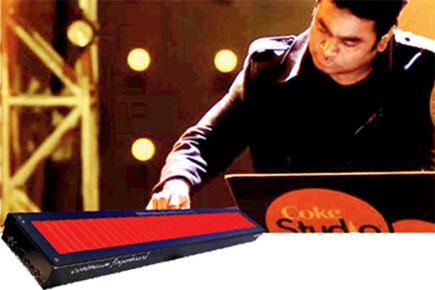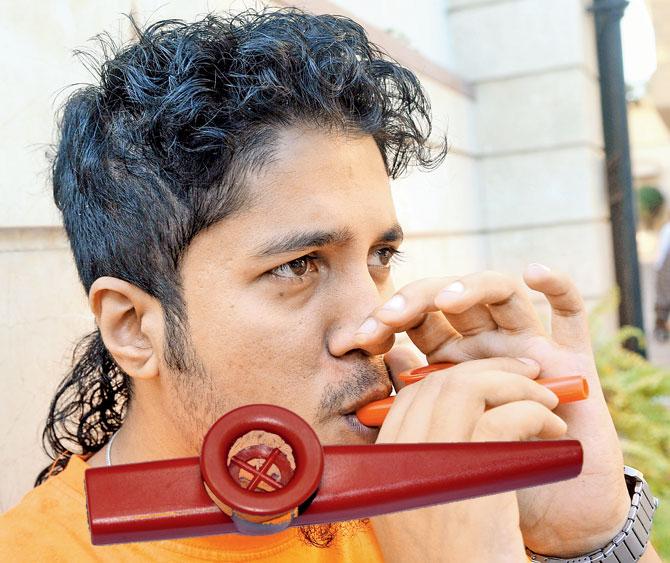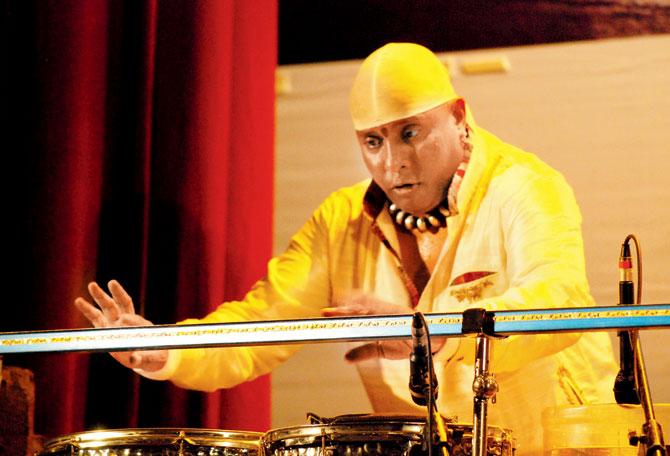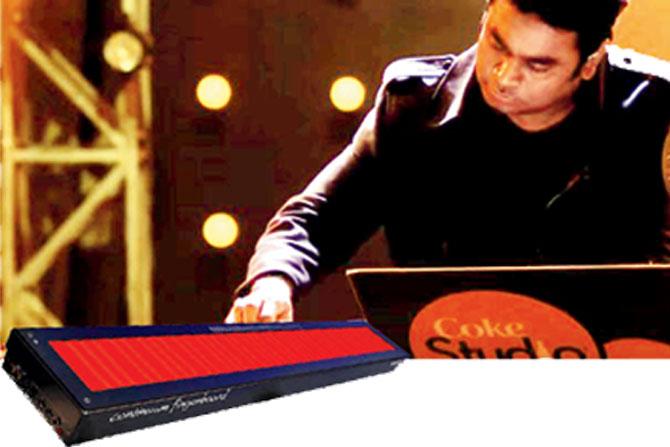The Kazoo, continuum fingerboard and slaperoo have arrived in India, thanks to AR Rahman and Sivamani


The reporter tries the kazoo
"Without a sense of tune, playing the instrument can be awkward. I see a lot of people using it but only a handful can do justice. My wife, Runa, can pull off complicated compositions in Tamil like Singara Velane on it," says renowned percussionist Sivamani about the kazoo, a pipe organ, which along with some other uncommon instruments, is gaining currency in India.
ADVERTISEMENT
K for kazoo
The kazoo is a poor man’s saxophone. You need to put the pipe into your mouth and hum. It will generate a sound that may remind one of jug bands. A clever use of the vocal pitch can also produce the tune of a trumpet or shehnai. Earlier, its use was restricted to comedy shows and satires but in the last few years, people have started using it with more versatility. In fact, there are videos of musicians playing a kazoo cover of a popular song.
The kazoo has found most of its users in south India, as its sound complements the ebb and flow of Carnatic music. The body of the instrument can have a steel finish or plastic one but that doesn’t create a difference in sound. "It is all the same. The buttery wax paper that forms the surface makes all the difference," explains Sivamani. Among Bollywood musicians, Benny Dayal is often seen playing the kazoo.
Sivamani using the slaperoo during a performance
Slap and bass
Another instrument that fascinates Sivamani is the slaperoo. Invented by Andy Graham, a California-based musician, it comprises a metallic stick, which is an electric-tuned rod.
"It is a slap bass instrument. I came across it while taking a walk with my friend Stevie Wonder on the streets of USA. I met Andy and we started jamming instantly. You need to use all your fingers to play the slaperoo. A drummer with good finger technique can do wonders with it," says Sivamani, who uses the instrument in all his gigs. It can be connected to an effects processor too.
AR Rahman uses the fingerboard, that measures just 19x137 cm
Rahman magic
The continuum fingerboard was initially heard in the film, Delhi 6. AR Rahman played a melodic solo on the fingerboard in the song, Rehna Tu. The device is the brainchild of Lippold Haken, a professor of Electrical and Computer Engineering at the University of Illinois, and is sold by Haken Audio. "AR surprised me in Coke Studio when he used the instrument (in songs like Zariya). I remember him telling me not to use any toms (part of a drum kit). He wanted me to try something new, since the instrument hadn’t been heard before. What a fantastic percussive tone he composed," recalls Sivamani, who recently received the instrument as a gift from the man himself. "I am trying to do my homework with it. You cannot travel very often with a fingerboard. It has strings inside and a change of positions will affect the notes. Even a change of weather can cause damage," he adds.
Suyash Medh, 26-year-old percussion player from Mumbai, who was a part of Rahman’s crew in the Coke Studio sessions, believes that these new sounds will forever be relevant. "I have seen AR play the fingerboard live. The best part is that it doesn’t have buttons, the interaction with the instrument completely changes because it is an open surface. The notes are marked but you are free to express yourself the way you want," he adds.
The next time you attend a Rahman concert, watch out for the rectangular surface that rests beside his laptop. The rest, they say, is magic.
 Subscribe today by clicking the link and stay updated with the latest news!" Click here!
Subscribe today by clicking the link and stay updated with the latest news!" Click here!







